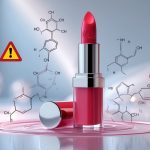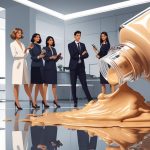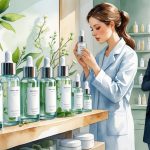Luxury Skincare Claims Suddenly Under Fire as New Study Shows Gaps
Spotlight on Sensitive Skin and Special Conditions
Wait, why is “sensitive skin” suddenly a trend? It’s everywhere. Coast Southwest claimed “over half the population” has it. That’s wild. I mean, I get redness every morning, so I guess I’m in the club.
Product Claims for Sensitive and Eczema-Prone Skin
Some serums claim “sensitive skin safe,” and instantly the price jumps—$100+ for a thimble-sized bottle (I checked a 2020 BASF report, not kidding). But “sensitive” isn’t really regulated. FDA says claims have to be “truthful” and “not misleading,” which means…what, exactly? Eczema-specific stuff? I see oat, ceramides, niacinamide, and even tea tree in “eczema-calming” bottles, but ask Dr. Zoe Draelos or any derm and they’ll shrug—evidence is weak for some of those. If you’ve ever stood in an aisle comparing “hypoallergenic” and “dermatologist tested” and wondered if anyone checks, yeah, me too.
The Clean Beauty Movement and Its Claims
I still can’t believe how “clean beauty” turned into this marketing monster. It’s everywhere. “Plant-derived,” “free-from”—sounds great, but the labels just blur together, especially now that lawsuits about misleading claims keep popping up.
Defining ‘Clean’ in Skincare
Try asking what “clean” means in skincare. You’ll get six answers from five brands. Target, Nordstrom, Sephora—they all have different “clean” standards. No FDA baseline, just whatever the retailer or brand makes up. Dr. Shereene Idriss said it best: “The moment the word ‘clean’ showed up, no one could decide what ‘dirty’ was.”
Brands love to list what’s NOT in the bottle—parabens, phthalates, sulfates—but then swap in mystery chemicals that aren’t even tested for this use. Ulta’s website throws on three “clean” badges per product, but each means something totally different. That’s not transparency. Allergic reactions don’t care what influencers call clean.
Misconceptions About Clean Beauty
“Clean” equals “safer,” right? That’s the myth. The $15.3 billion clean market (2028 forecast) thrives on confusion. Someone asked about goat milk lotion last week—cool, but where’s the safety data? PFAS-free? Maybe, but who’s checking? Usually nobody.
People want safety, but get a “free from” list instead. Lawsuits over misleading claims barely make a dent. It’s not all hype, but it’s not all science either. Dr. Anjali Mahto nailed it: “Clean beauty isn’t scientific, it’s marketing.” I keep tripping over five versions of “no nasties” at CVS, and still, not one bottle tells you what makes it clean, or who even decided that.
Beyond the Hype: The Future of Luxury Skincare Marketing
Okay, so here’s the thing: nobody’s squinting at ingredient lists under fluorescent bathroom lights at 2 a.m., right? And yet, brands keep tossing around words like “quantum” and “innovation” as if anyone’s actually going to buy the idea that a moisturizer is somehow breaking the laws of physics. I mean, have you ever seen a quantum physicist in a serum ad? Me neither. But hey, apparently we’re all supposed to just nod along and fork over $300 for a jar of… what, exactly? I don’t know. Feels like we’re all just chasing “results,” whatever that even means anymore.
Trends Shaping Tomorrow’s Beauty Industry
So, scrolling TikTok—because of course I am—I keep tripping over “doctor-backed” brands. Like, what does that even mean? Did a dermatologist just nod once at a PowerPoint? The lines between “derma-beauty” and actual clinical stuff are so blurry it’s almost funny. DLG says luxury skincare searches shot up 57% in four years. Is that because marketing works, or are we just desperate for a miracle in a bottle? Honestly, I can’t tell.
Now, every launch is crammed with peptides, niacinamide, “biomimetic” tech—whatever that is. Ask five real dermatologists (not the ones with ring lights and discount codes) about quantum anything in creams and they’ll just look at you like you asked them to solve a Rubik’s cube blindfolded. I know people in the industry who just roll their eyes at these terms—remember Guerlain’s $740 cream? Feels like nobody’s actually checking if these claims hold up. Like, peer review for night creams? Not happening.
Oh, and with TikTok maybe getting banned in the U.S.—who knows, it’s always something—brands are stampeding to Instagram. But does anyone even know if a before/after post means anything? I’ve never seen actual data in those. “High performance” gets thrown around, but what does that even mean? I don’t know. I’ve used stuff that felt nice and did nothing, and stuff that smelled like a hospital but actually worked. Or maybe it was just my imagination. Who can say?
Steps Toward Greater Transparency and Rigor
Here’s where it gets messy: everyone wants “authenticity,” but how do you fact-check a brand’s wild claims when “proven results” is just a phrase on a box? Some execs promise “rigorous testing” and “third-party verification,” but then slap an asterisk on every clinical trial like it’s a footnote nobody reads. I tried to get ingredient sourcing info from a popular serum brand—got a glossy brochure and zero answers. Sometimes there’s a list, sometimes just a vague statement, never anything actually useful.
Doctors always say “patch test,” but do you know anyone who’s actually running spreadsheet comparisons on peptides or measuring moisturizer pH at home? I emailed a big brand once, asked for raw efficacy numbers, and they sent me a press kit. Not helpful. There are new EU rules about beauty marketing, but honestly, most brands are still scrambling to catch up, so everything’s vague and nobody gives you a straight timeline.
Google Trends says “luxury beauty” is outpacing “luxury handbags” now, so brands are sweating over authenticity. “Science-backed” isn’t enough anymore—now it’s about ingredient traceability, actual consumer reviews that aren’t just bots, and real independent clinical tests. Not the ones run by a brand’s favorite lab partner. But, like, at the end of the day, who hasn’t wondered if that $300 serum is just the same as the free sample? Because I swear, sometimes it feels like it.



